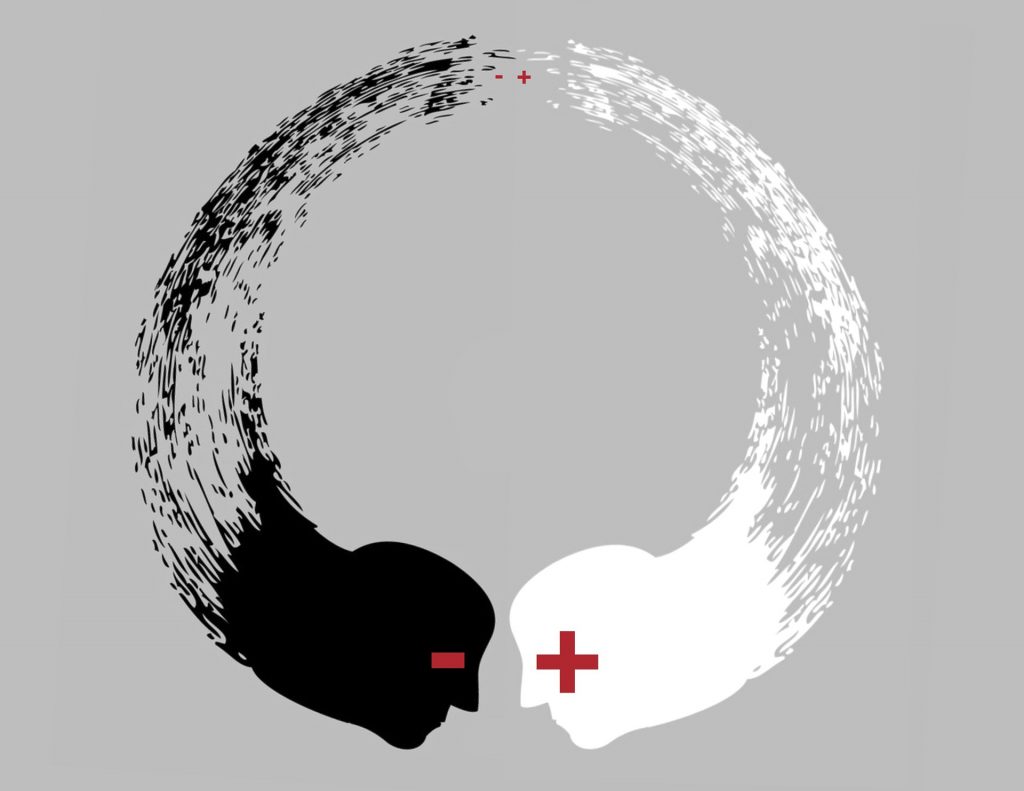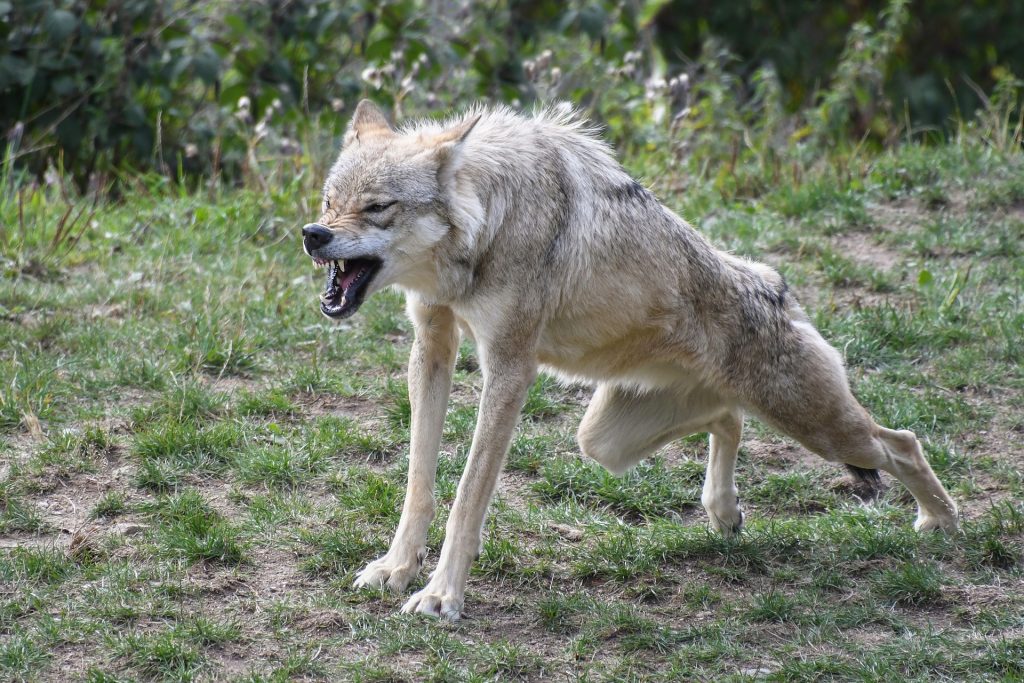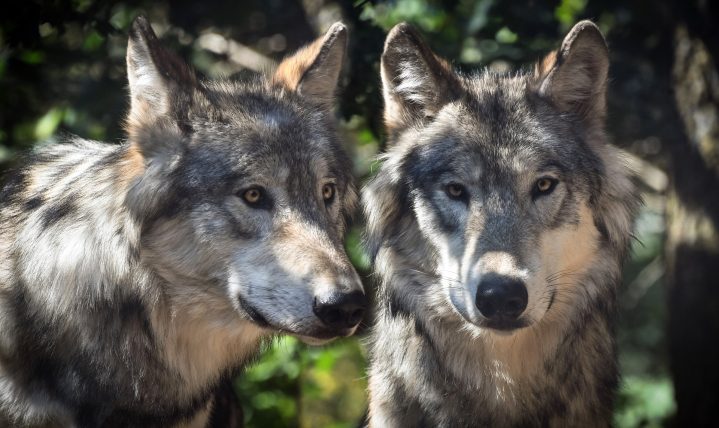When I was in my worst years of drinking, I felt like it was all my fault. Drinking felt like it should be within my control, because it was a behavior, but I could not control it. And worst yet, I couldn’t explain it or my actions.
And I did such bad things around drinking which I hated about myself – manipulating, lying, and hiding.
Once indulging, I often became a totally different person – an obnoxious, disgusting, and/or belligerent person I didn’t like. And the thing is that I knew this behavior wasn’t really who I was — that was the kicker! But it was how I was behaving.
Often, I drank to stop ruminating on what I’d done while drunk. That, my friend, is a destructive and perpetuating cycle.
I couldn’t understand or explain why I did what I did.

Since I’ve sobered up, one of the toughest things I’ve had to reconcile is my drunk self with my sober self, with regard to puzzling and regrettable behavior. How could I explain this? Did I just lose all sense of my true personality and character and transform into someone else? It seemed that way.
They’re such different people, my drunk and sober selves; difficult to believe they come from the same body.
There’s a Native American legend which helps me get some clarity around this dichotomy of character. It’s called “The Wolves Within” or “The Two Wolves”, and it goes something like this:
A wise Cherokee is teaching his grandson about an ongoing battle inside between two wolves. There is an evil wolf, and “he is anger, envy, sorrow, regret, greed, arrogance, self-pity, guilt, resentment, inferiority, lies, false pride, superiority, and ego.” And there is the good wolf – pretty much the opposite. When the boy asks which one wins, the grandfather responds with, “the one you feed”. (www.firstpeople.us)
Maybe we all struggle with the opposing “wolves” within.
This makes sense to me, and it also speaks to the point that perhaps this is a human trait, and not solely a drinking human trait. Maybe all humans struggle with these two internal “wolves”.
In fact, I’m pretty sure of it, because I’m also reminded that both Jesus Christ (for some, the actual Son of God) and Paul (one of his disciples and primary author of the New Testament) both spoke to this issue. Jesus says, “The spirit is willing but the flesh is weak,” (Matthew 26:41); while Paul writes in Romans 7:15, “I do not understand what I do; for I don’t do what I would like to do, but instead I do what I hate.”
Does that sound like you? I mean seriously, it sounded like me every day — I do not understand why I do this! What I would like to do is not get drunk; yet, here I am, getting drunk — again. And I hate it! Especially the next morning, yet I would do it time and time again.
The problem is exacerbated because both voices are a part of the whole: me. And they’re largely unconscious and automatic, which makes it so confounding, frustrating, and nearly impossible to recognize, much less to change. And so, lost in that mysterious cycle of self-perpetuated destructive behavior we remain.
Would the real me please stand up?
There’s the voice tempting me to drink one day, then kicking me in the teeth the next morning for getting drunk again. The voice I hear first is “one won’t hurt” at 5 o’clock the day before, (which we all know is never only one); then I’m awakened by a different voice the next morning saying, “OMG! You did it again! What were you thinking?” Am I right?
But it doesn’t end there, because once the drinking starts, then there’s the whole Dr. Jekyll & Mr. Hyde thing going on, where I turn into someone really different than my sober, more acceptable self. So what gives? What’s going on?
From a physiology standpoint, there is an explanation for our two selves.
Today what I know is this: very simply, we have two parts to our brain. One part is all about drinking and one part is not. (Of course, both parts have myriad desires and functions, but we’re only looking at how we handle alcohol for this discussion.)
The good wolf and the bad wolf. Which one are you feeding?
The one that’s all about drinking is the one that is responsible for urges/craving. It’s present-moment oriented and very powerful. It is responsible for the thought “just one”. Meet the “evil wolf”.
The other part of our brain is future-oriented, logical, and “knows better”. It’s the one who wakes us up the next morning or in the middle of the night with, “What were you thinking?” It is also very powerful.
These two voices are clearly not on the same page when it comes to alcohol consumption, even though they share the same head – yours.

They need to get on the same page, and until they do, there seems to be a constant battle raging within you. Like you need that, right?
The first step is recognizing these two exist. Because when you aren’t aware of them both, you’re at the mercy of whichever one speaks the loudest at the moment when you’re deciding to drink or not drink.
Dr. Jekyll and Mr. Hyde
These two parts of your brain are also responsible for the opposing behaviors once you’ve started drinking. The part of your brain which sent out the craving chemicals and got you to take the first drink is also the one which has no regard for future consequences. So, you take risks, say hurtful things you don’t mean, and generally do some foolish things you may not normally do.
And as inconvenient as it is, this part of your brain which “knows better”, also is highly effected by alcohol. The minute you start drinking, it goes “offline”, so to speak, until you come to or sober up.

Phenomenon explained. Now if you’d like to try a free tip to help curb the urge to drink using this idea of the two parts of your brain, I’ve created a tool that may help. Click here to get the download.
You don’t know what you don’t know.
With this new knowledge, I’ve been able to let go of the guilt, shame, regret, and self-loathing. It does not serve me to remind myself of the many deplorable things I did around drinking alcohol. It simply doesn’t.
I remind myself of these two parts of my brain and how they were functioning against one another and against me, but within me. And I remind myself that until I got them on the same page, I was simply at the mercy of the “bad wolf” very often. And I just didn’t know what I didn’t know. Now I do.

The “bad wolf” doesn’t bite me anymore, when it comes to alcohol. He still shows up in other ways in my life/personality, but not around drinking. I’d love to help you with this too. Get my free download, and silence your howling wolf.

I can relate to what you saying,please help thanks
Amanda, Can you elaborate on what part you relate to? The tool I’m offering helps you start seeing where the urge to drink comes from. It’s from an older part of the brain that’s more like an instinct.
Amanda, Can you elaborate about which part you relate to?
I can totally relate to that and the 2 different parts – 1 saying at 5pm don’t do it and the other saying – go on just 1 is ok and the part around the hurtful comments. Why do you think we say things to ppl we don’t mean when alcohol is involved?
Kath, Because the part of the brain where our filters live, the Pre-Frontal Cortex, dissolves in alcohol, and we are at the mercy of the older part of the brain, which is much more reactive, knee-jerk. Does that make sense?